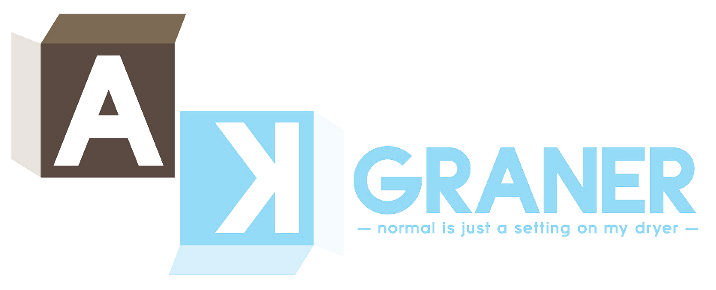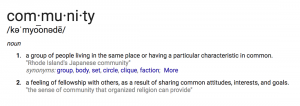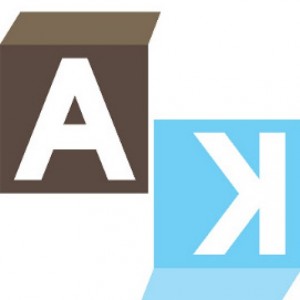Personalities Behind the Fests – Alan Hicks Southeast Linux Fest

Hey everyone! As always I am looking for new and exciting faces and ideas to add to my blog. So I thought I would introduce you to the people behind some of the Linux Fests I’ve attended and lending some support to. Southeast Linux Fest was the very first Linux Fest I ever attended. Want to know more about SELF click here (http://www.southeastlinuxfest.org/) Let’s get started:
Amber Graner: Hi Alan and thanks for being the first volunteer to be
interviewed for my series on people behind the Southeast Linux Fest.
Can you take a moment and introduce yourself to everyone so they can
get to know a little bit more about this Jaw-Juh (that’s Georgia for
those not from the South), native, FOSS contributor and co-author of
Slackware Linux Essentials.
Alan Hicks: Well, I’m 29, single, intelligent, handsome, compassionate, sexy….
wait… this isn’t e-harmony!
Ok, the truth. I’m a beer-drinkin’, tobacco-spittin’ redneck from the
Georgia swamps. I was born in bred in Lizella, Georgia, and currently
live in the Greater Lizella Area (GLA). To be more specific, I reside
in a location known to locals as Salamander Town. It’s called this
because the only critters here are snakes and salamanders, and if we
called it Snake Town no one would want to live here. I’m a huntin’,
fishin’ hacker who’s been running Slackware Linux since sometime in
late 2000.
As for what I do in the OSS community, I edited and largely authored a
revision to the original “Good Book”, Slackware Linux Essentials, and
posted it online. You can find it at http://www.slackbook.org/ today,
or order a copy from the Slackware Store (http://store.slackware.com/)
stand-alone, or bundled with a copy of Slackware 13.0 at reasonable
prices. The book is going through a third revision now (which is
really more of a total re-write), and should be released within six
months if my life will ever slow down.
I’m also a not-too-active member of SlackBuilds.org
(http://www.slackbuilds.org/), an online repository of scripts used for
compiling and packaging software for the Slackware Linux operating
system. If you’re familiar with the BSD ports tree, SBo is very
similar. You simply download the SlackBuild script (and accompanying
files), download the source code (linked in those files), and run the
script to generate a Slackware package suitable for installation on any
machine running Slackware. The scripts take care of compiling binaries
(with architecture dependent CFLAGS), stripping binaries, gzipping man
pages, installing documentation, setting permissions, etc.
I was a member of the now-defunct SlackSec project which published
binary package updates for Slackware during when the maintainer,
Patrick Volkerding, was critically ill. At the time, we caught a lot
of flack when some members of the community thought we were trying to
usurp the role of Slackware maintainers from Pat, but those quickly
died away when Pat returned to better health and the SlackSec project
quietly ended.
Today, I’m a member of the “Super Secret Slackware Development Team”,
working alongside others such as Eric Hameleers (alienBOB), Robby
Workman (rworkman), and of course, Pat himself. I’m not as active as
the others however, and sometimes consider myself to be more moral
support than technical help. I would like to participate more, but I
maintain a very busy lifestyle, and often when I get home from working
on computers for 8 to 10 hours, I need time to unwind away from the
monitor just to maintain the small degree of sanity I have left.
Custom Technology Solutions of Macon (CTSMacon). Can you tell me
about it and what you do there?
AH: Certainly. CTSMacon is a small computer company specializing in open
source solutions for small businesses and local governments. We do a
little bit of everything, from Samba to Apache, Postfix to Asterisk.
I’m currently struggling with an independent software vendor (ISV),
who shall remain un-named. This ISV writes database software in MS
Access and MS SQL Server for county courts. I’ve been working to
convince them to port things over to MySQL with some success, but
things are taking some time to develop. It’s frustrating to work with
a company that does not understand Linux and feels intimidated by its
use. On the other hand, they could stand to benefit from migrating to
this platform, as it would cost their clients much less money to
deploy, and in recessions such as the one we find ourselves in today,
saving clients money is perhaps the best way to grow your user base. For
more details, or if you need computer work performed for your company in
middle Georgia, see our website at http://www.ctsmacon.com/.
first drew you into the world of free and open source software? When
did you first get involved with GNU/Linux. What was the distribution
you used then. What do you use now?
Well, to be honest, my road into this community is a little atypical.
Most people seem to learn about Linux from a friend or a family member,
but I sort of stumbled upon it. Back in late 1999, early 2000, the
only Internet connection I could get was AOL dial-up on a 2400 baud
(yes, that’s 2400, not 2.4k) modem. The WWW was practically unusable at
such slow speeds, so I was limited to text modes of communication, as
downloading any sort of image would slow the connection to a complete
crawl. This was on a Packard Bell 486 DX (no math co-processor)!
I discovered Linux by crawling through AOL message boards before
finally making my way into AOL’s Usenet portal. Yes, I learned about
Linux through the Eternal September. To make a long story short, I
read some one’s long rant about Linux and the GPL and got interested
enough to search for more information. After looking through what I
could find through AOL, I finally did a google search for places to
purchase Linux. I read through several articles on different Linux
distributions and finally settled on one that sounded like it would be
a good learning experience, Slackware. I ordered Slackware Linux 7.1,
along with the first edition of the “Good Book” through Amazon.com of
all places. A few months before, I had purchased a brand new computer,
a white-box with 256MB of RAM, Windows Me, and a Pentium-III 800MHz
Coppermine. The P-IVs were new at this time, and I’d gotten a job
(doing of all things), sellings computers at a Sam’s Club. I’m
starting to ramble, so I’ll cut to the chase.
I installed Slackware Linux 7.1 (which used libc instead of glibc,
packed sendmail, apache, X, GNOME, KDE, and a whole lot more in under
1GB) onto this machine as soon as the disks arrived. At this time, I
knew no one in the world who used Linux, and the only Internet
connection available to me was America On-line. This would all change
just a few days after 9/11. I was working at Sam’s Club, and got to
talking with this guy who ran his own computer company and knew even
less than I did. I BS’d my way into a job with his company and held on
long enough to learn to ropes. I played around with other distributions
such as Mandrake, SuSE, and (particularly) RedHat as the job demanded,
but I always kept coming back to Slackware.
AG: Seeing as how you sorta stumbled your way through getting involved in FOSS. What recommendations would you make for getting new non-technical people involved? What would be the way you would recommend getting your “average end used involved with a project and FOSS as a whole?”
AH: Wow is that a tough question! I think the trouble with getting
non-technical people involved with Linux isn’t so much that they are
non-technical, but that they just don’t care enough to make a switch.
Let’s face it, switching is hard whether you’re switching from Windows
to Linux, switching from MS SQL Server to MySQL, switching jobs, or
switching homes. We all get into comfortable ruts where things are
friendly and familiar. Switching out of those ruts is difficult, even
when you know the rewards are worth it.
Today, your average computer user is getting smarter each day. This is
largely due to natural processes. Young people today grow up immersed
in computers, which wasn’t true even just a few short years ago when I
was a teenager. These people are more likely to try out Linux for the
same reasons that they are more likely to try out Facebook than their
parents are. They might gravitate towards distributions like Fedora and
Ubuntu, but not necessarily gravitate towards computer science. At
this time, I think the open source community is doing a good job of
reaching out to these people, and that as they mature into their
college years and into the job market, they’ll be less indisposed,
perhaps even predisposed to using Linux.
I think the real challenge is in reaching out to the entrenched Windows
user base. Open source advocates may make progress in convincing users
to switch to Linux because those users are fed up with Windows Vista
(and see no reason to suspect that Windows 7 will be any better).
Right now, however, we have a particularly unique opportunity to
convince businesses and governments to adopt open source. The current
recession has caused many businesses and small local governments to
loose revenue. These organizations don’t have the kind of money they
did just a few short years ago, but their network infrastructure is
aging every day. As they try to adapt and replace their failing
computer systems, open source advocates need to step up to the plate
with their own ideas.
We’ve heard for years how open source can save organizations money, but
many businesses have resisted switching because they are trapped in a
comfortable, familiar rut. Their servers and workstations may crash,
but it’s become familiar and non-threatening to them. Still, if they
are going to update to Windows Server 2008, install MS SQL Server, and
license everything properly, they will be spending thousands of dollars
more than a comparable Linux of BSD system with Postgres or MySQL.
I think the real trick to convincing these businesses to switch though,
is to convince the ISVs they use to switch. This isn’t always easy, or
even possible, but advocates should be reminding these ISVs of the
benefits. For example, I’m working with an ISV to get them to switch
from MS SQL Server to MySQL. Even if they decide to use Windows
servers, they could save their customers thousands of dollars while
turning a higher profit. This only makes business sense. By
reinforcing the benefits of FOSS to business organizations and ISVs, we
can overcome the inertia that keeps users from switching.
What in you opinion makes SELF such a great event? What areas of the
Event do you help with? What is the one thing in your mind that
stands out most about SELF?
AH: Well, I actually am not on the planning committee for SELF, but I do
try to attend meetings when possible and give input when I feel it is
warranted. I started coming into SELF’s IRC channel
(#southeastlinuxfest on irc.freenode.net) almost immediately after
people starting kicking around the idea. At this time, there was no
board or positions, just a group of people that really wanted to see
this happen. As for what makes SELF great? There’s no one thing, but
if I had to choose, I’d put the following things on the short list.
1- The people. There hasn’t been a major Linux event in the South
since the Atlanta Linux Showcase shutdown at the beginning of the
dot.bomb crash. These people would normally have to drive or fly long
distances to go to events like this. Having one in the South finally
taps back into this crowd of energetic people. After all, we have
major technology centers here such as Atlanta and Raleigh.
2- The people. The SELF board has done a spectacular job of organizing
the event. I can personally vouch that these guys put a lot of hard
work and planning into SELF and strive to make it something to
remember. They really deserve a huge pat on the back.
3- The relaxed atmosphere. The attendants at SELF aren’t looking down
their noses at rednecks or country folks. In fact, quite a lot of us
are from rural areas and proudly wear it as a badge of honor. Can you
imagine a couple of guys getting together at SCALE in order to teach
people how to make moonshine for instance? :^) Could you imagine some
one stealing some one else’s steak at OLF? (In my defense, the steak
had been abandoned and desired to be eaten. I was doing the steak a
favor.)
As for what stands out the most, I’d say it was the camaraderie and
friendly atmosphere. The way people smiled and laughed easily and
everyone got along.
community that you would like to tell people about and encourage then
to participate in?
AH: I think I answered this mostly in my opening remarks, but it doesn’t
hurt to come back to it here.
SlackBuilds.org – we’re always looking for a few more good Slackers to
submit build scripts for the applications they use. While our
repository is large, it isn’t nearly as complete as those utilized by
some other distributions (notably Debian and its descendants have very
extensive software repositories).
Slackware – we’re always looking for a few good Slackers. If you’re
the kind of person that likes to be in complete control of your
computer, then Slackware may be for you. It’s a very complete,
no-frills, no-non-sense distribution that doesn’t get in your way and
doesn’t require you to do things a certain way. There are some
trade-offs for that, but if you want total control, or you just want to
learn more about how Linux works “under the hood”, then Slackware would
be a good place to look for answers. We’ve recently released version
13.0 with official x86_64 architecture support and are gearing up for
the next edition of -current. If you think you’re interested, you can
download the isos from a local mirror, download the entire repo via FTP
or rsync and build your own isos, or grab them via bittorrent.
Alan, Thank you so much for sharing you time and talent and letting people get a glimpse into who you are and what you do in the FOSS community. I appreciate your time and looking forward to seeing you in the future whether SELF, IRC or some other FOSS community event.




